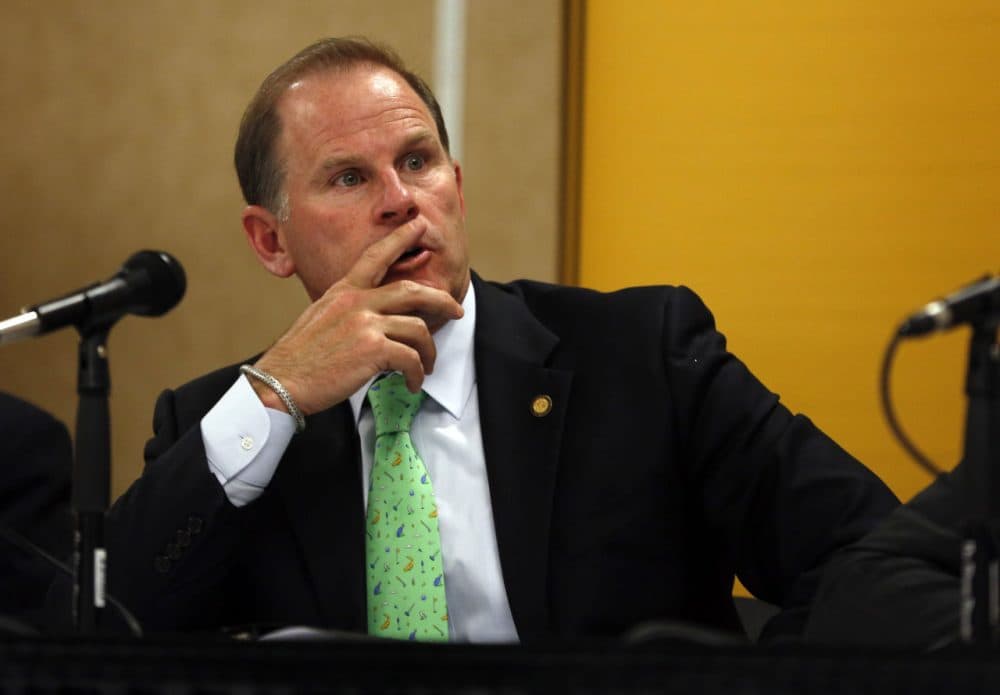Advertisement
Mizzou President Resigns Over Handling Of Racial Issues
Resume
The president of the University of Missouri System says he is resigning amid student criticism of his handling of racial issues. Tim Wolfe says his resignation is effective immediately. The announcement came at a special meeting of the university system's governing body.
Black student groups have been complaining for months about racial slurs and other offensive incidents on the system's overwhelmingly white flagship campus in Columbia. Their efforts got a boost over the weekend when 30 black football players announced they wouldn't participate in team activities until Wolfe was removed.
Interview Highlights
How are people reacting to the announcement of Wolfe’s resignation?
“Elation. It’s been a long time coming. I think that this is a good step, but it’s a step in a long journey. And so while the students and the faculty that support them are excited that the students have been heard, we understand and acknowledge that there’s much work to be done. Because what they’re fighting is really a struggle against a system and an environment where there’s a feeling of marginalization.”
On the escalating racial tensions on campus
“It’s been bubbling up for a while and I would say it probably started last year with Mike Brown’s murder in Ferguson… And so last year there were marches on campus and I noticed at that point that the black students seemed to be marching on their own. And at that point, they were basically just saying ‘Look, this happens. This happens in our state. Are we safe? Can we get some solidarity? Can we address how that affects all of us?’”
On instances that led to students feeling marginalized – a swastika drawn in feces on a bathroom wall and a student being called a racial slur
“These are all instances of a long story. So these are all episodes and the fact that we heard about these two instances of the N-word and the swastika are just part of the bigger story. So that when we think about it – if students are telling us that they don’t feel comfortable, then we don’t need more examples. All we need to know and all we should care about is that they feel that there is a sense of racism on campus now. I always say folks should go and read the comments in the local paper – whether it’s in the school paper or the local town paper – from people who are responding to these stories, and the vile racism that is out there is unbelievable in 2015.”
What has to happen now?
“What has to happen is that we have to have concrete steps in place, not little task forces and committees, which are all wonderful and full of well-meaning and well-intended people who are doing good work. What we need is to make sure that those committees and task forces turn in action. For example, there’s talk of diversity training, there’s talk of a diversity course that all students would take. That course can be just sort of cobbled together quickly, because what we’re trying to teach our students – black, white, international, Asian, all of them – is not that black people should be tolerated, it is that black people have a right to feel comfortable, to feel as privileged and as included as anybody else.
Guest
- Stephanie Shonekan, chair of the Department of Black Studies at the University of Missouri, and an associate professor of ethnomusicology. She tweets @SShonekan.
This segment aired on November 9, 2015.